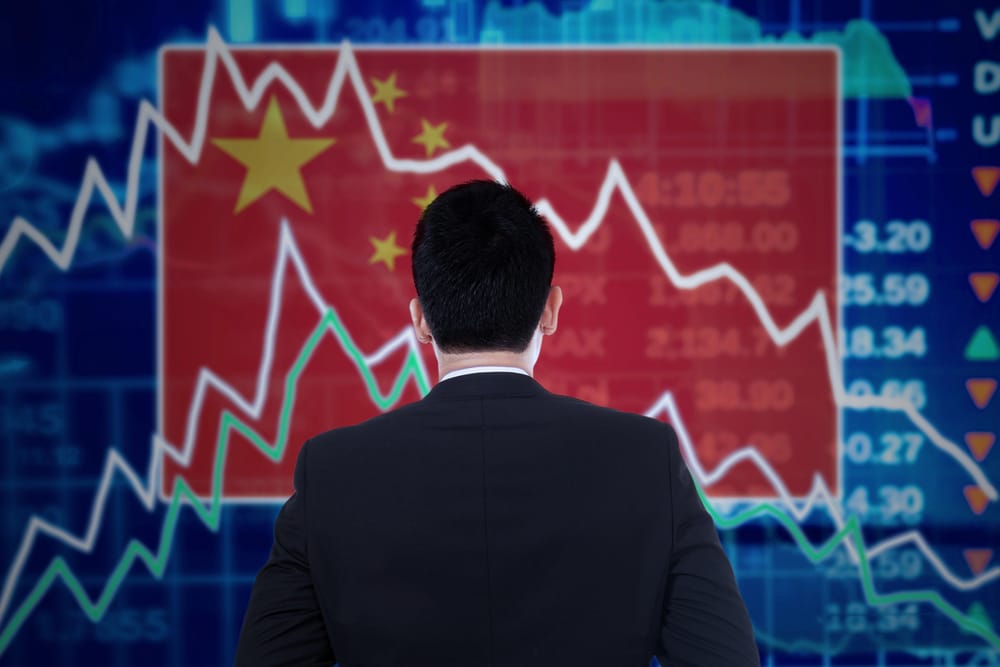Recent headlines regarding China’s economy have painted a grim picture. From sagging stock markets to the continuing, multidimensional real-estate crises, there is no shortage of negative news coming out of the world’s second-largest economy. Yet while these challenges are real and present significant hurdles, it would be a mistake to read too much into the current malaise. China remains a maturing economy with plenty of room for future growth. Of course, its development path will be slower and more uneven, a byproduct of its previous interventionist policies (which promise to continue), as well as the basic imbalance in its economic model. However, in this difficult economic period, China’s increasingly assertive actions in its immediate neighborhood, particularly in the South China Sea pose a different kind of risk—one that could spark a geopolitical crisis.
Much of the recent news has focused on China’s stock market struggles and the broader slowdown in its economy. The People’s Bank of China (PBOC) has rolled out a series of unprecedented measures in response to this. In a move designed to stabilize markets, the PBOC introduced a swap facility worth 500 billion yuan ($71 billion), enabling non-bank financial institutions to access funding for share purchases. This was followed by additional liquidity measures and rumors of an even larger stabilization fund. Yet, despite these efforts, analysts remain skeptical that they will be enough to stop the bleeding. China’s stock market, represented by the CSI 300 Index, has been one of the world’s worst performers for several years, reflecting broader concerns about the country’s economic health—though it did, predictably, soar in the days since these measures were announced.
In addition to market instability, China faces deeper structural issues. The real-estate sector, which has long driven growth, is in a deep downturn. Coupled with concerns about deflation, sluggish domestic consumption, and a labor market showing signs of strain, Beijing’s 5% growth target for the year appears increasingly out of reach. Even with the latest batch of economic measures, which include interest rate cuts and easing down-payment requirements for homebuyers, economists warn that China’s economy could remain stuck in a low-growth rut—low growth by the standards of a still-developing economy, that is.
However, to conclude that China is on the verge of economic collapse would be premature. The country’s leadership has shown a willingness to intervene decisively when needed, and despite its current challenges, China’s overall economic trajectory remains upward. To be sure, the interventionist nature of the Chinese government will constrain growth potential, but it also serves as a stabilizing force, reducing the likelihood of sudden economic ruptures.
While China’s economic difficulties have dominated headlines recently, in the past several months it has been Beijing’s geopolitical moves in its immediate environs that have kept the corporate presses hot. As previously covered, despite efforts to defuse the situation, tensions continue to rise between China and the Philippines. A series of confrontations over disputed territories have strained relations between the two countries, and while both sides have so far avoided direct conflict, the situation remains precarious.
After Washington’s newly announced large package of military aid for Taiwan, Beijing conducted a rare intercontinental ballistic missile (ICBM) test—a not so subtle signal of Beijing’s displeasure over Washington’s increasing militarization of the island. Indeed, according to Leif-Eric Easley, a professor of international studies at Ewha University in Seoul, the ICBM test was a message to Washington that “direct intervention in a conflict across the Taiwan Strait would involve the American homeland being vulnerable to attack.”
None of these actions are occurring in a vacuum. From Donald Trump’s trade war and the Pentagon’s reorientation toward so-called “Great Power Competition,” to Joe Biden’s subsequent formal adoption of the policy of “strategic competition” with China, tensions between the two countries have steadily increased. Washington has worked tirelessly to forge new alliances in the region, while continuing to push China on issues ranging from trade and human rights to its military activities. The United States’ efforts to contain China’s rise have exacerbated an already volatile situation. Now, China’s leadership faces an increasingly difficult balancing act. On the one hand, it must address the very real economic problems at home. On the other hand, it must manage its growing international obligations and ambitions.
There is a historical precedent for embattled regimes turning outward in moments of domestic crisis. Leaders, seeking to deflect public anger away from their own failures, often find foreign adversaries convenient targets. In China’s case, it would not take much to convince the population that Washington is responsible for its economic troubles. Chinese state media has long painted the United States as a bully trying to undermine China’s rightful place in the world. Faced with growing domestic discontent, Chinese leaders may increasingly lean into this narrative, using it to rally the population around the flag and justify further assertiveness abroad.
The risk is that this leads to a confrontation that neither side can easily walk away from. In the South China Sea, in particular, where American naval forces regularly conduct so-called “freedom of navigation operations,” even a minor incident could spiral into a broader conflict. As Beijing grows more assertive and Washington digs in its heels on containment, the chances of such a crisis increase.
In sum, while China’s economy faces significant challenges, an immediate collapse is unlikely. Instead, the country is navigating a slow transition toward a more mature, albeit interventionist, economic model. The greater risk may lie not in the stock market or real-estate crisis, but in how these circumstances intermix with broader political and geopolitical calculations by the leadership.
As the United States continues to press its containment strategy, the possibility of a serious crisis looms larger.
The American people gain nothing from Washington’s belligerence toward Beijing, but a bipartisan consensus has emerged in Washington that more belligerence toward Beijing is exactly what the American people are going to get.
It could and should be otherwise.

































